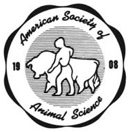An article published in the peer-reviewed Journal of Animal Science concludes feeding livestock diets that contain genetically engineered (GE) crops has no impact on the health or productivity of those animals. In a thorough review of scientific literature and field data sets, the article documents evidence that the performance and health of food-producing animals fed GE crops are comparable with those of animals fed non-GE crops.
Since their introduction in 1996, GE feed crops have become an increasing component of livestock diets. Today, more than 95 percent of U.S. food-producing animals consume feed containing GE crops. Studies that involve feeding GE crops to livestock are used to evaluate the safety of these crops.
Recently, University of California, Davis researchers reinforced the consistency of these studies in an unprecedented review article that examines nearly 30 years worth of livestock-feeding studies, representing more than 100 billion animals.
In the review, posted online September 24 in the Journal of Animal Science, Alison Van Eenennaam, Cooperative Extension Specialist in Animal Biotechnology in the Department of Animal Science at the University of California, Davis, and research assistant Amy Young examine feeding data from 1983 (13 years before GE crops were introduced) through 2011 (when GE feed use exceeded 90 percent).
The review also examines the composition of products derived from animals fed diets containing GE feeds. “No study has revealed any differences in the nutritional profile of animal products derived from GE-fed animals,” state the authors.
The review, entitled “Prevalence and impacts of genetically engineered feedstuffs on livestock populations,” will appear in print and open-access in the October 2014 Journal of Animal Science. Due to the high level of interest in the article, ASAS has elected to make the full article immediately available in open-access form at www.asas.org.
 The American Society of Animal Science fosters the discovery, sharing and application of scientific knowledge concerning the responsible use of animals to enhance human life and well-being. Our members work in agriculture because they love animals and believe feeding our families, friends, and communities is important.
The American Society of Animal Science fosters the discovery, sharing and application of scientific knowledge concerning the responsible use of animals to enhance human life and well-being. Our members work in agriculture because they love animals and believe feeding our families, friends, and communities is important.









